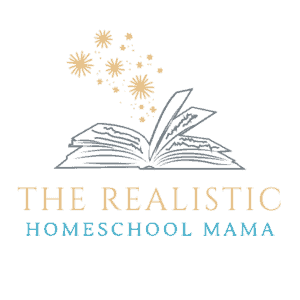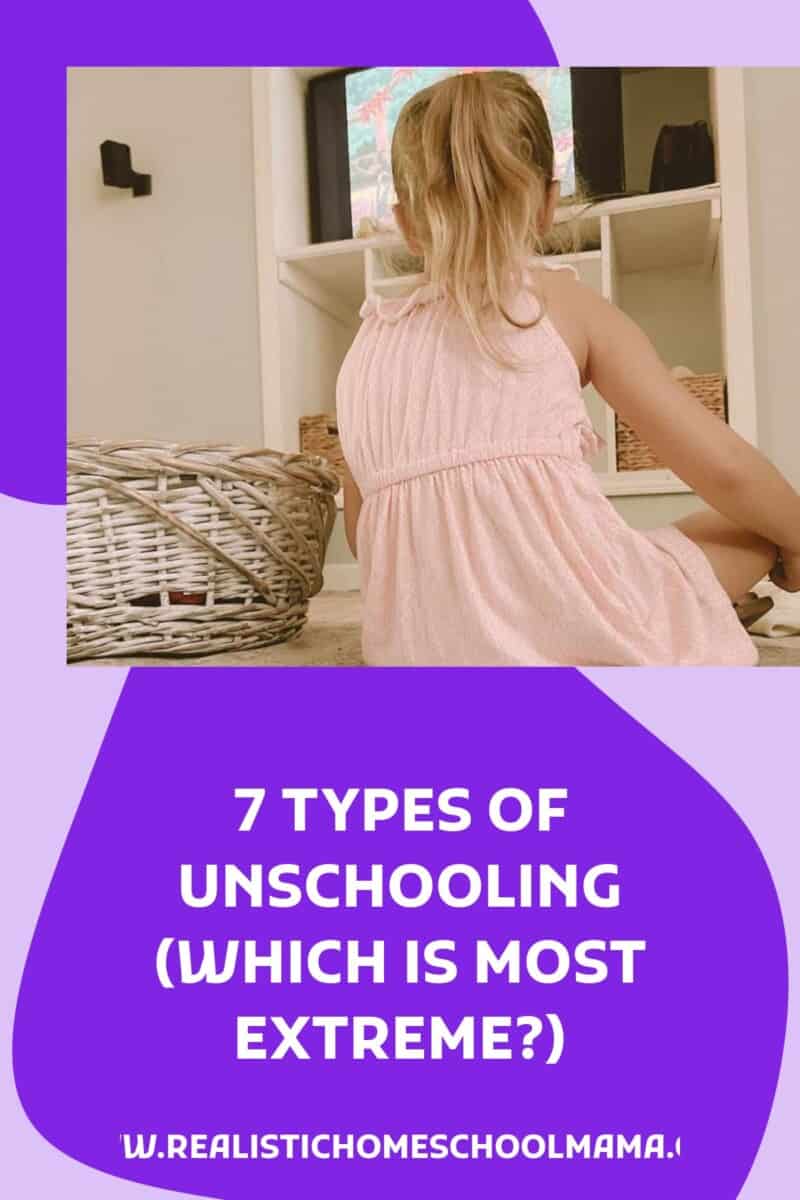When I first started digging into the world of unschooling, I started hearing some different terms that made me realize that there may be more than one style or type of unschooling. After some research, I learned of at least seven styles of learning that are frequently categorized as unschooling.
The two primary categories of unschooling are Unschooling and Radical Unschooling. Wildschooling, Eclectic Homeschooling, World Schooling, Nature Schooling, Delight Directed and Child Led Learning are also all terms that frequently fall under the unschooling umbrella.
What is the Difference Between Unschooling and Radical Unschooling?
Unschooling is focused primarily on education, whereas Radical Unschooling encompasses all areas of life.
Unschooling is based on the philosophy that children learn best at their own pace, by following their own interests, unencumbered by rigid structure or curriculum. Unschoolers strive to provide children with a supportive setting that encourages their natural curiosity and allows them to learn free of preconceived expectations. They are allowed to follow their interests and passions, and the adults in their lives support them in bringing opportunities to the child as the child shows interest.
Radical unschooling leans more towards a whole life unschooling standard that goes beyond education and takes things a step further by extending the unschooling philosophy into all areas of life.
Radical unschoolers often approach their relationships with their children as more of a partnership, and attempts to limit or eliminate the authoritative figure in relationships and extends autonomy into all areas of life. Because of this, Radical Unschooling is often considered the more extreme version of umschooling.
Is Eclectic or Interest Led Learning the Same as Unschooling?
Eclectic homeschooling is a term used when creating a customized education by mixing and matching a variety of homeschooling resources and/or styles. Therefore, Eclectic homeschooling can also utilize unschooling, and vice versa, to some degree.
Many homeschooling families will find that what worked well one semester, may not work as well the next. Eclectic homeschooling is a personalized approach for each child based on their strengths, interest and stages of development. They may choose to move in and out of an unschooling approach as needs and preferences change. As a result, the eclectic approach will look completely different for each family, and may or may not include some degree of unschooling.
What is WildSchooling?
Wildschooling is an educational movement designed to honor our innate bond with nature. It is considered a progressive parenting philosophy which encourages the creativity, curiosity, and joy that children naturally express.
Wildschooling takes much of it’s inspiration from a wide-range of sources and philosophies, including (but not limited) to: Forest School, Earth Schooling, Waldorf, Charlotte Mason, The Reggio Emilia Approach, Self-Reg, permaculture, peaceful parenting, unschooling, indigenous knowledge and traditions, and most importantly of course, time spent Nature itself.

What is Nature Schooling?
Nature schooling returns children to the outdoors, where they are encouraged to forge their own path of learning. Nature Schooling (also called forest schooling) supports the belief that nature is the best teacher and that child-led, play-driven time spent outdoors is the best way for children to learn and grow.
Nature schooling returns children to the outdoors where they are encouraged to form their own path of learning in the great outdoors.
What is a Radical Unschooler?
Radical unschooling embraces the belief that children possess an inner wisdom far beyond what modern society gives them credit for. Radical unschooling extends the philosophy of unschooling into all aspects of daily life, not just with regard to education.
It involves trusting and partnering with our children, with parents acting as guides and facilitators, helping children to connect with their inner wisdom and intuition.
Radical Unschoolers prefer to work with their children to help them live in a balanced and healthy way, not only in regard to academics, but also in ordinary day to day activities. They tend to follow a rhythm throughout their day as opposed to a set schedule, and instead of imposing authoritative limits often give their children more freedom in choosing things for themselves, such as bed time, clothing choices, etc.
It is important to note that unschooling is not “unparenting”. Parents who intentionally choose the radical unschooling lifestyle are extremely involved, aware, and intentional. Radical Unschooling is not allowing children to raise themselves amongst chaos, although it may sometimes appear that way to a judgmental outside eye at first glance
Is Delight Directed or Child Led Learning a Type of Unschooling?
Delight directed learning and unschooling are similar but different.
A big difference is that delight-directed learning can be one part of homeschooling. It can be something you only sometimes do. You can use delight-directed learning for all subjects or only some.
In contrast, Unschooling is done all the time, every day. It’s more “self-directed” than “delight-directed.”
Delight led learning doesn’t mean that a curriculum is never used or that there is no organization or structure. But it does mean that the curriculum isn’t always followed the way it was designed. A curriculum might be utilized as more of a flexible resource than as a cut and dry program.
World Schooling vs Unschooling-whats the difference?
World Schooling is education that occurs through travel, unschooling is an approach to education that involves organic learning, or learning that happens through experience.
Many World Schoolers travel full-time from place to place, seeking out hands-on educational opportunities along the way. Some choose to unschool their children while others prefer to follow a set curriculum.
World schoolers vary in their approach greatly and what works for one family may not always work for another family.
Recent Posts
The freedom to educate our own children in the whatever method we see best suited to their needs is a freedom I do not take lightly, and am eternally grateful for. SO much is available to us, and...
There are a LOT of things about the Charlotte Mason method of homeschooling that appeal to me. However, the theory of intentionally developing good habits in your children is one that I admittedly...



